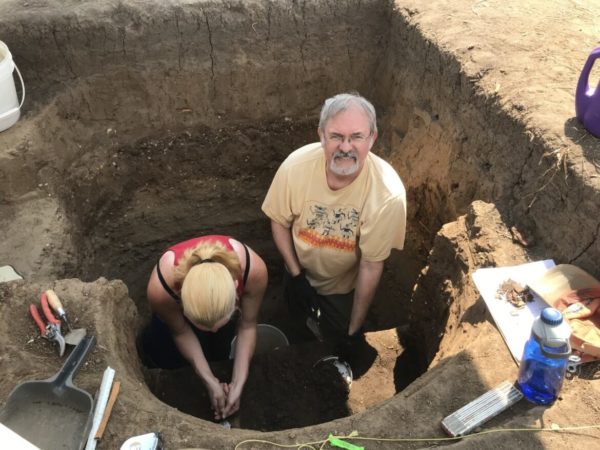
Six states were selected by the U.S. Centers for Disease Control (CDC), to be awarded $5 million in order to test residents for environmental chemical exposures — like PFAS. Four out of the six states are located along the Great Lakes including Michigan, Minnesota, Wisconsin, and New York. These biomonitoring grants start September 2024 and go until 2027.
The University of Wisconsin-Madison’s School of Medicine and Public Health came out with a new study that found PFAS and other versions of this “forever chemical” are in the blood of most residents in Wisconsin. However, according to the Milwaukee Journal Sentinel, those levels are lower than “in most other states.” The study also found that there are two foods linked with higher levels of the chemicals: fresh local fish, and to a lesser extent microwave popcorn. The demographic most likely to have higher levels of PFAS were older white men from higher income levels, who eat fresh caught fish.
On Monday, August 26, Wisconsin Gov. Tony Evers and the Wisconsin Department of Natural Resources (DNR) announced that they are working to get the state’s drinking water standards up-to-date with new federal PFAS regulations. According to Wisconsin Public Radio, the DNR expects about 90 public water systems would need to work on remediation efforts to meet the new standards.
According to Wastewater Digest, more than 35,000 people are demanding the Minnesota Public Control Agency (MPCA) fully bans 3M from discharging any amount of PFAS into the Mississippi River. According to the Minnesota Star Tribune, for the first time, the state is requiring that the main chemical manufacturer of these “forever” substances, must limit the amount of PFAS that get into the Mississippi River from its aged factory in Cottage Grove. 3M is asking for a hearing with the MPCA, to challenge these new restrictions.
For context, the state of Minnesota (also 3M’s home state) already enacted a ban on per- and polyfluorinated substances (PFAS), in most applications except when it is determined to be unavoidable. The ban is being rolled out gradually, but aims to be in full-effect by 2032. For the next year, MPCA plans to test the entirety of the Mississippi River, within state limits. MPCA aims to have a fully operational reporting system for PFAS by the end of 2025.
Meanwhile, a class action lawsuit filed in Minnesota federal court alleges that 3M, Corteva, and Chemours covered up the health risks of “forever chemicals” in stain resistant carpets and rugs sold across the country. While 3M is known as the main manufacturer of PFAS, DuPont was the originator of the chemical compound, and Chemours and Corteva are spinoffs of DuPont.
More PFAS news in case you missed it:
- In Michigan, city officials in Grayling are asking residents to write to their Congress members for funds to remediate local PFAS contamination.
- According to Bay Today, the City of North Bay, in Ontario, Canada “notes drinking water standards in Ontario are established by the Ministry of the Environment, Conservation and Parks (MECP), therefore any regulatory changes will need to be made by the MECP” in response to new PFAS limits set by Health Canada.
- The U.S. Environmental Protection Agency (EPA) pledges $15 million in research grants to research PFAS in relation to the country’s food supply, as it’s been deemed a “significant threat,” according to Newsweek.
- In an op-ed in the Wisconsin Examiner, Christopher Cox writes about how Wisconsin Congressman Bryan Steil is taking the state “backwards” in terms of holding companies accountable for issues as wide-ranging as PFAS and the opioid crisis.
Catch more news at Great Lakes Now:
PFAS Roundup: Wisconsin PFAS remediation funds still frozen due to partisan divide
PFAS Roundup: Government of Canada introduces potential plan for product-related PFAS regulation
Featured image: The former Wurtsmith Air Force base in Oscoda, Michigan is responsible for PFAS in groundwater in nearby communities. (Great Lakes Now Episode 1025)




